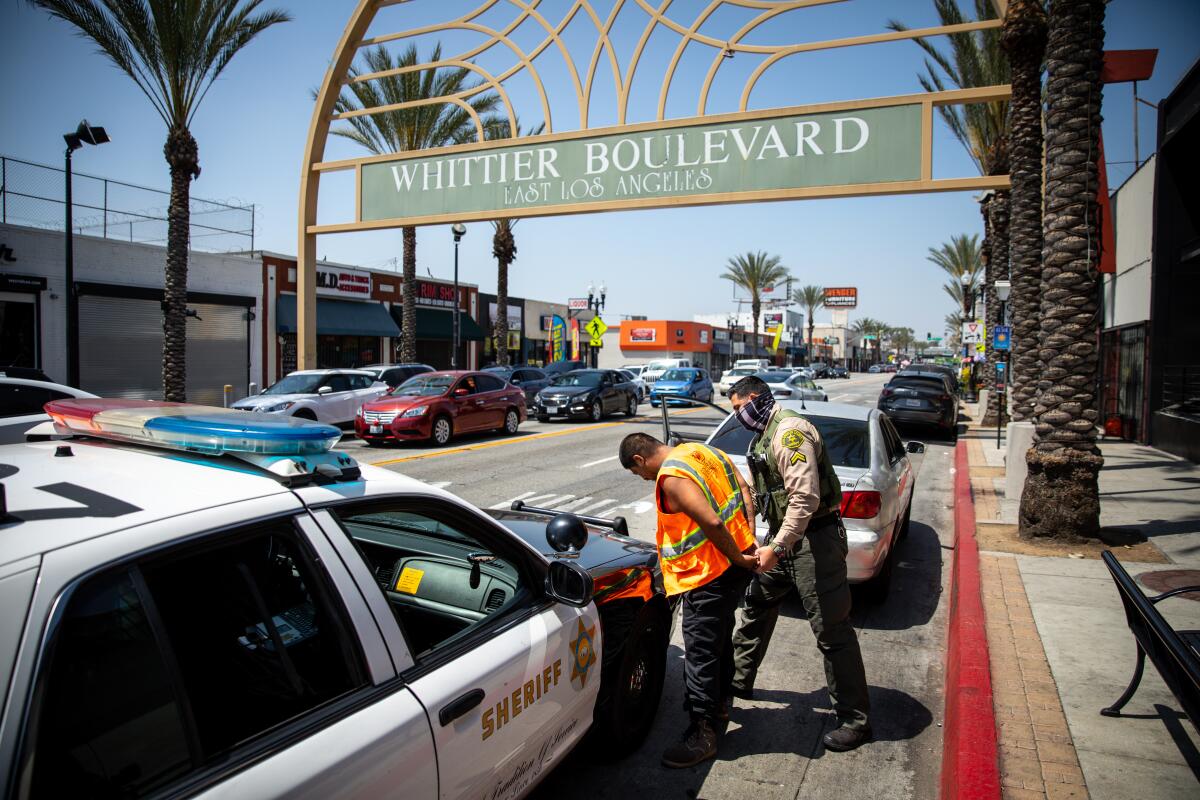California police required to state reason for traffic stops before questioning drivers next year

- Share via
Starting Jan. 1, California police officers will have to tell drivers why they’ve been pulled over before questioning them on any subject.
The new law stems from a state Assembly bill passed in 2022 that will take effect in the new year.
The law, written by Assemblymember Chris Holden (D-Pasadena), seeks to curb “pretextual stops,” in which police use a minor infraction — sometimes not mentioned to the driver at the start of the interaction — as the basis to pull over a vehicle and investigate other possible crimes.
While pretextual stops have been deemed constitutional, a study by researchers at Stanford University of more than 100 million traffic stops across more than 20 states found that Black drivers were 1½ to two times more likely to be searched than their white counterparts. Similar disparities existed in Los Angeles, according to a 2019 analysis by The Times.
The new law would not stop police from pulling drivers over for minor infractions — such as a broken taillight — and then escalating to a search of the vehicle if they had probable cause to believe a crime had been committed.
But Oakland Privacy, a group supporting the legislation, says that simply knowing the reason for a stop can assuage a motorist’s “fear, panic and the urge to flee,” resulting in less combative and potentially dangerous interactions with police.
“There is simply no reason not to do this. The role of law enforcement is to enforce the law, not to play cat-and-mouse games to try to provoke people into doing the wrong thing and causing the encounter to spiral out of control,” the group said in a statement supporting the bill.
The law does allow for exceptions if an officer “reasonably believes that withholding the reason for the stop is necessary to protect life or property from imminent threat.”
Some jurisdictions have already worked to limit pretextual stops.
In Los Angeles, the Los Angeles Police Department instituted a similar rule in 2022 requiring officers to have a reason to believe a more serious crime had been committed before initiating a pretext stop. The rule requires officers to record on their body camera that reason before making the stop.
The rule quickly caused pretext stops by the LAPD to plummet.
Holden’s measure drew the ire of the California State Sheriff’s Assn., which called it “strict” and said that “it prohibits an officer from asking for a person’s identification or even asking a person to turn off the vehicle’s ignition prior to disclosing the reason for the stop.”
A bill that went even further than Holden’s failed to generate enough support to pass the Legislature this year.
The state Senate bill would have eliminated pretextual stops altogether, making it so police could not pull people over for minor infractions. Police would have been allowed to pull over motorists if they had two or more minor infractions at the same time, but not to pull over drivers for just one minor infraction.
More to Read
Sign up for Essential California
The most important California stories and recommendations in your inbox every morning.
You may occasionally receive promotional content from the Los Angeles Times.














